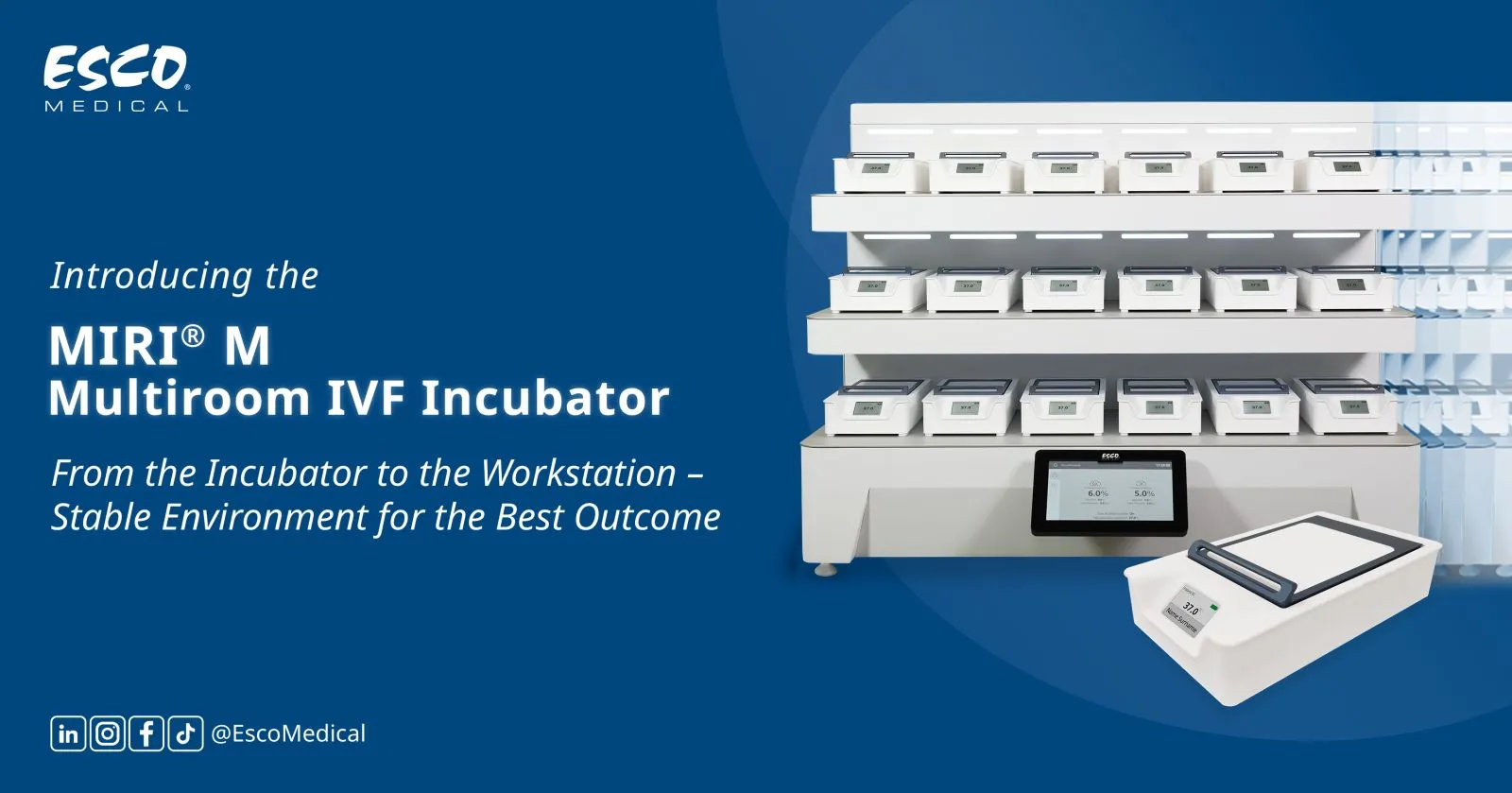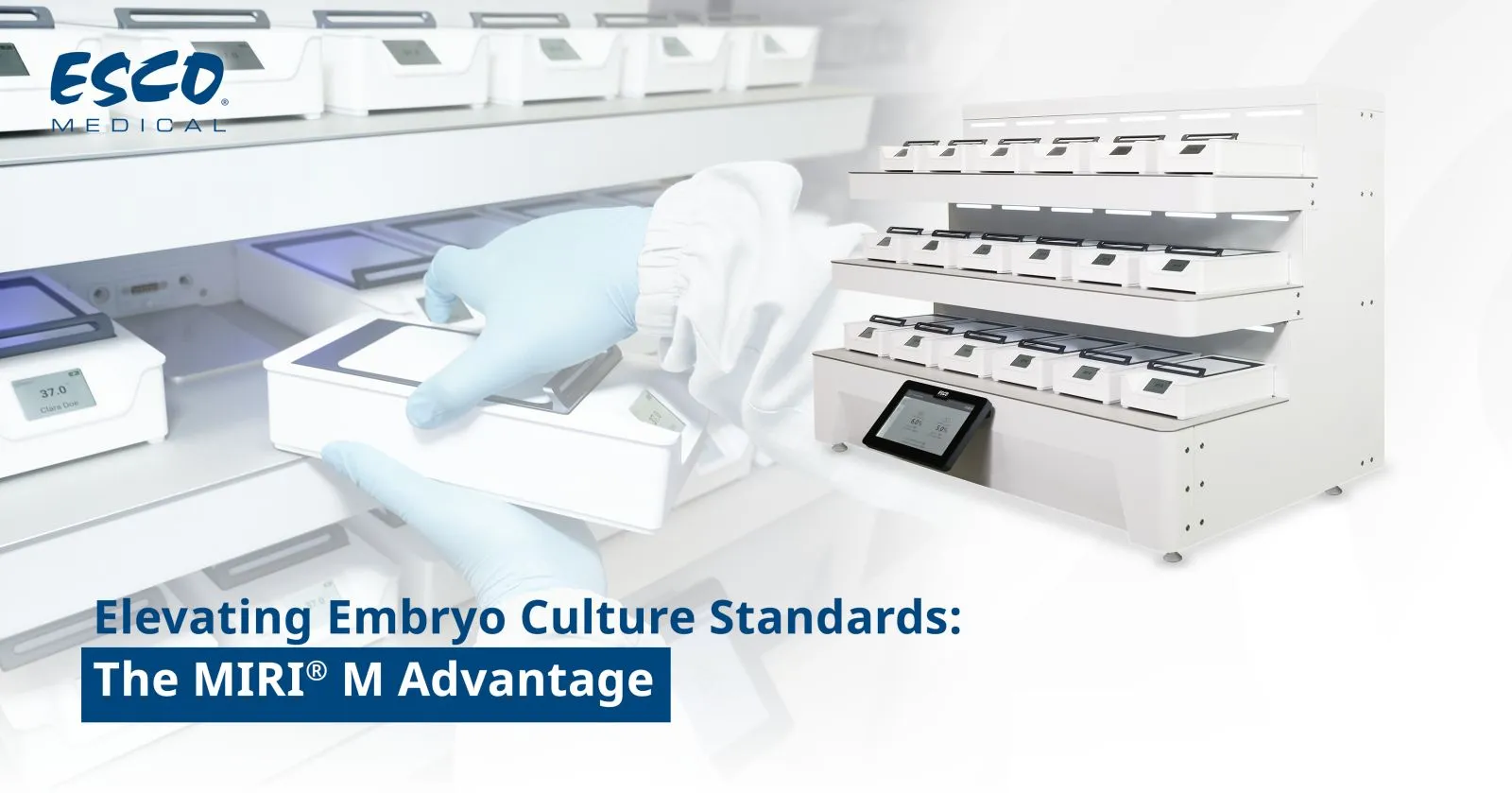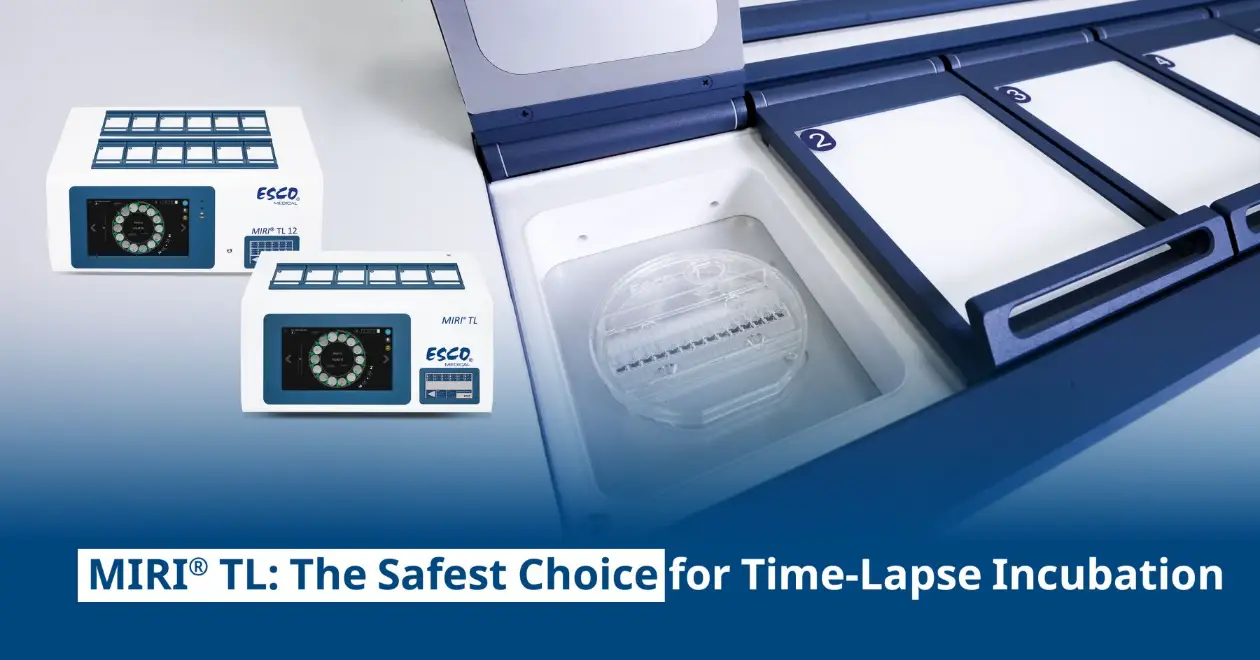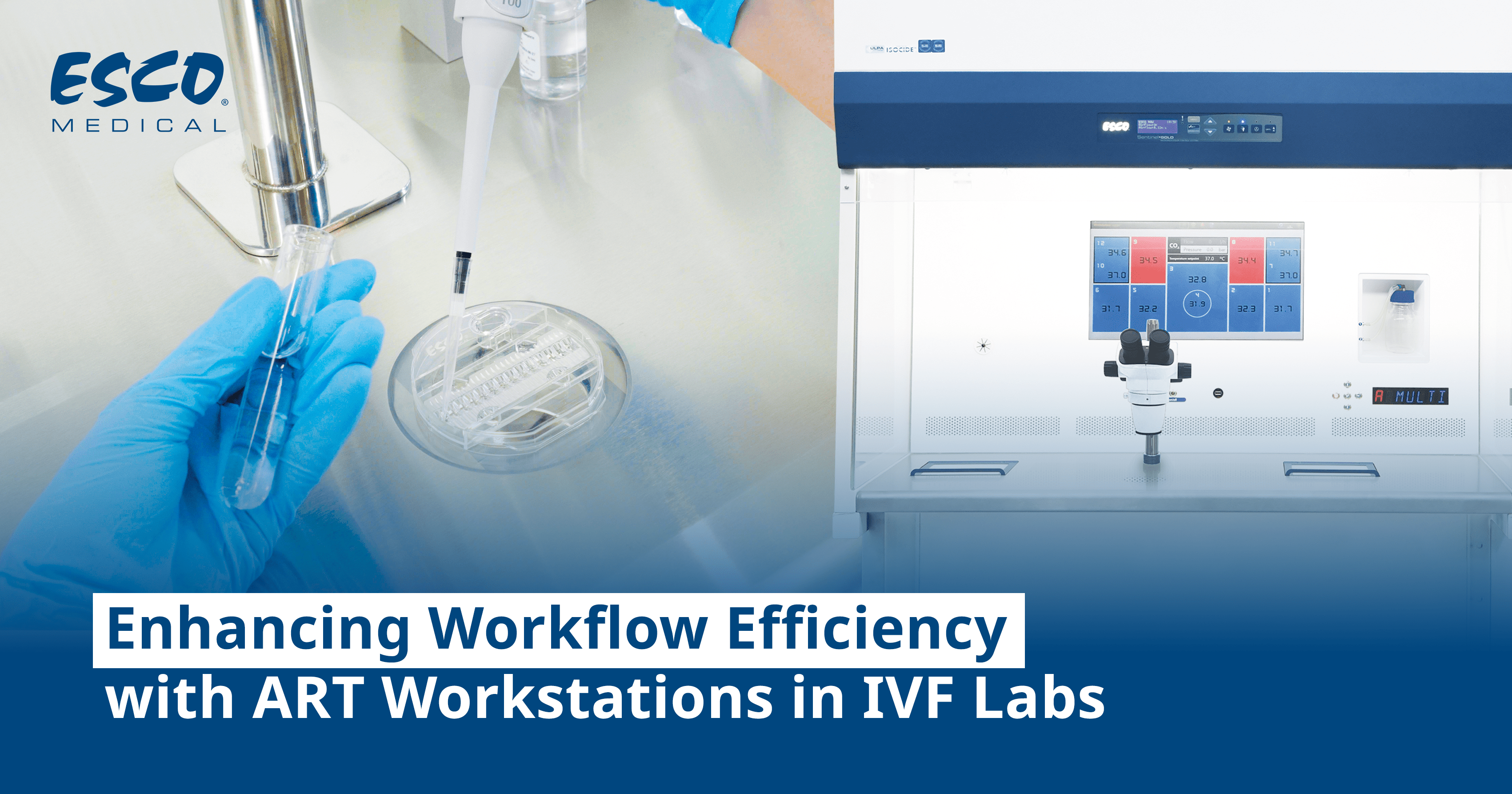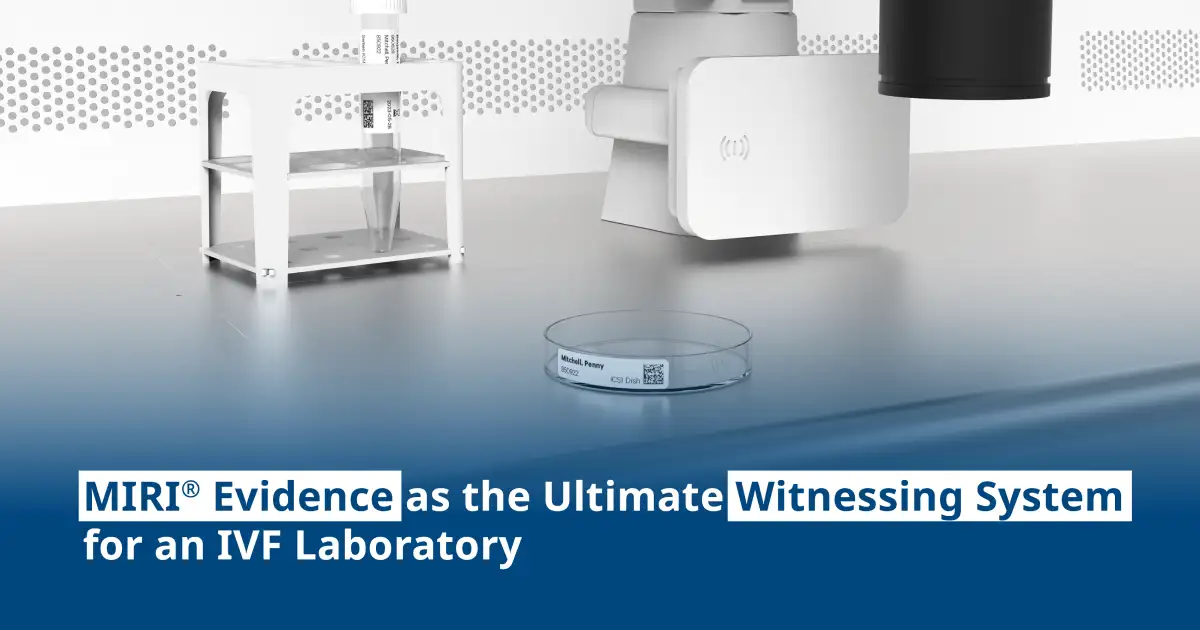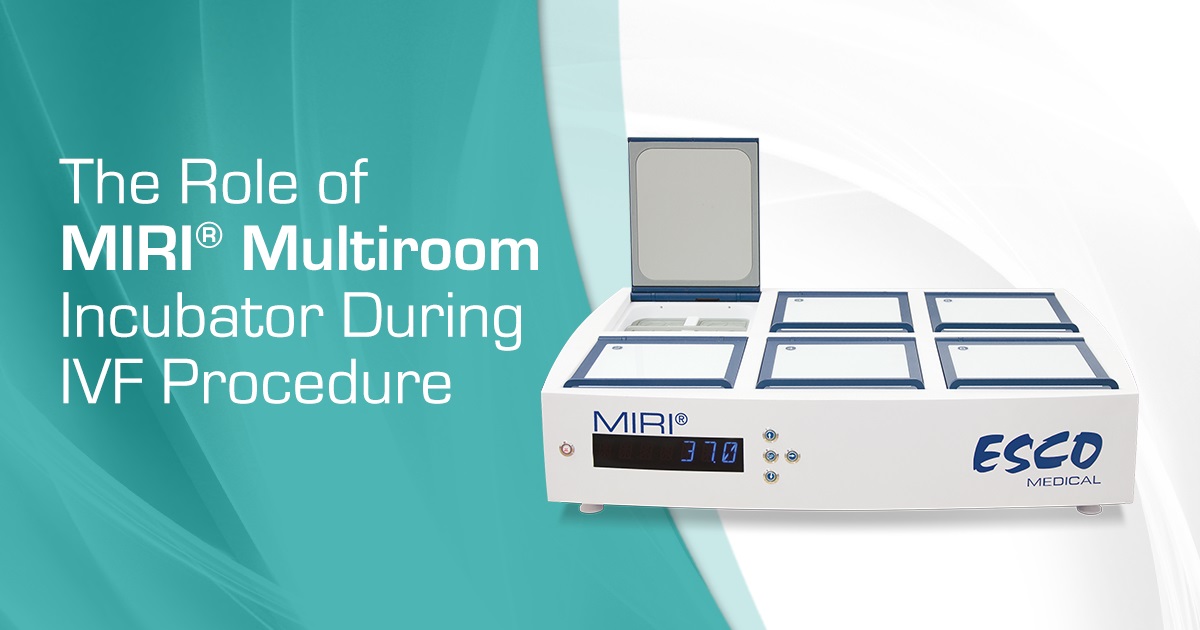
Quick Navigation:
- What is IVF in a nutshell?
- What are the Steps Involved in an IVF Procedure?
- What are the Factors that Affect the Quality of Embryo Culture
- Why is the MIRI® Multiroom Incubator helpful during an IVF Procedure?
Every stage in an IVF procedure will require the use of efficient, feature-packed equipment. The MIRI® Multiroom IVF incubator is an important must-have in laboratories today due to its ability to monitor and control environmental factors affecting embryo development.
Let’s explore further why MIRI Multiroom Incubators are a good addition to your IVF lab, what happens during IVF procedures, and the various factors that impact results.
What is IVF in a Nutshell?
In vitro fertilization (IVF) is a type of assisted reproductive technology (ART), a process of fertilizing egg and sperm cells outside the human body. It is a complex procedure that involves different steps to have a successful outcome. For a successful IVF journey, each step will require consistent compliance to protocols.
What are the Steps Involved in an IVF procedure?
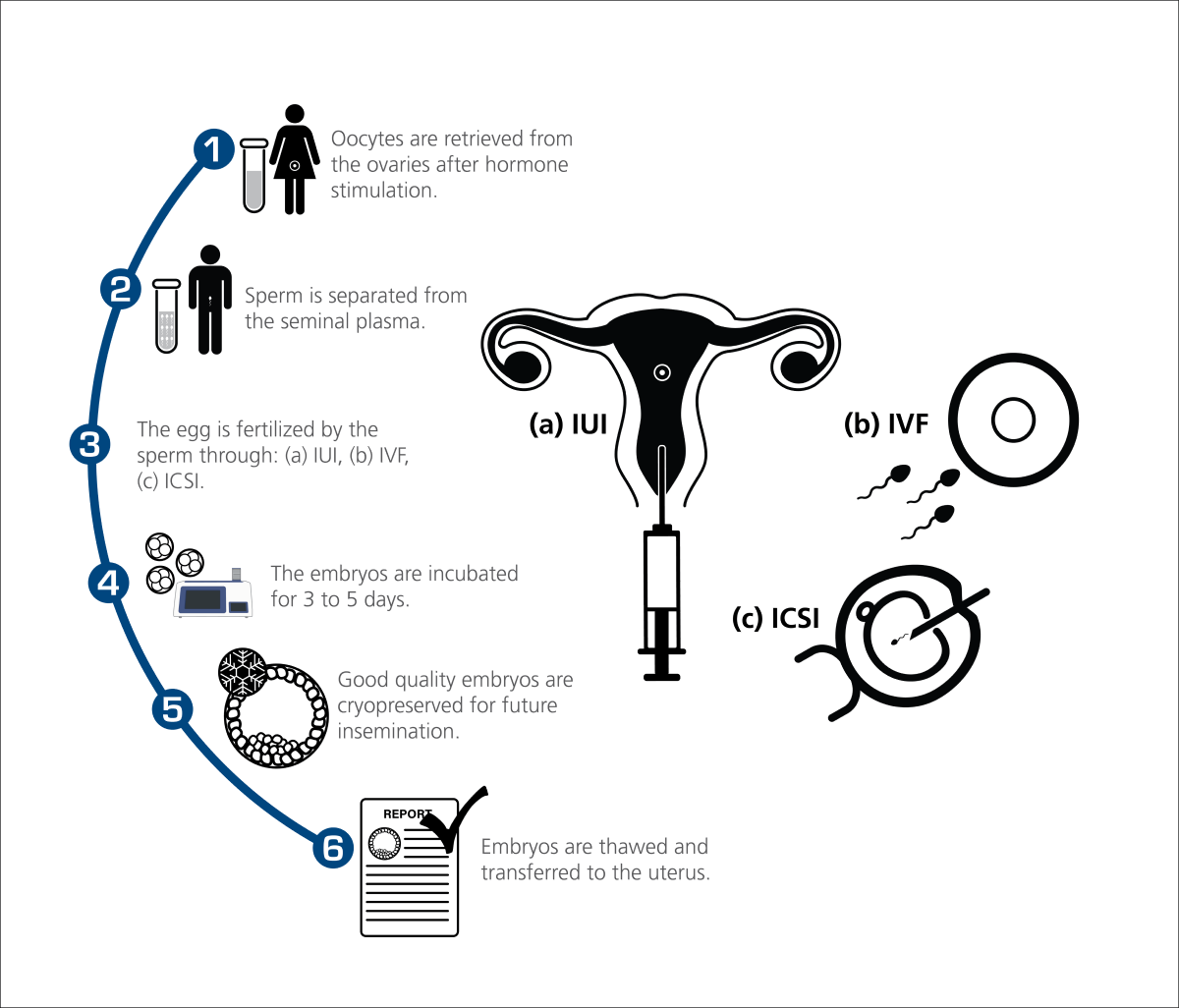
Ovulation induction
In this procedure, the egg cell donor will undergo synthetic hormone treatment to induce the ovaries to produce multiple egg cells
Egg and Sperm Cell Retrieval
After successful ovulation, mature egg cells are now ready to harvest and so the semen is collected from the male’s partner or a donor sperm cell can be used.
Fertilization
It is a process wherein the egg and sperm are mixed. It can be done conventionally by putting the gametes into a dish and incubated overnight or through Intracytoplasmic Sperm Injection (ICSI).
Embryo Culture
Once the egg is fertilized, it will become a zygote. It will be taken care of in the laboratory until it completely develops and ready to transfer.
Embryo Transfer
The mature embryo can now be transferred to the woman’s uterus
The embryo culture is a critical part of the IVF procedure. In this step, the laboratory staff monitors the growth of the cell from the time it was fertilized to the time it is ready to transfer into the woman’s womb. It is vital for the embryos to acquire the necessary optimal condition to increase their chance of survival during the IVF procedure. Any disproportion on the cell’s fundamental aspects could affect its quality, growth, and development and may lead to unsuccessful IVF treatment.
Factors Affecting the Quality of Embryo Culture
Temperature
The optimal temperature required for the culture is 37°C. Exposure to a temperature that is lower or higher than that can affect the embryo’s metabolism as well as its meiotic function, gamete behavior. The changes in temperature is known to affect the pH range inside the incubator.
pH
pH is one of the factors that the laboratory staff needs to monitor during the culture process. The culture should be performed between 7.2 – 7.4 pH range. Human embryos are known to be sensitive to pH disruption to optimal range, can lower cell quality, decrease the success rate to implant and form a viable fetus.
Air Quality
Another factor that contributes to the quality of culture is the air quality circulating in the incubator. The presence of unwanted air particles such as volatile organic compounds (VOC) can affect the cells’ integrity. The attachment of volatile organic compounds to the DNA directly alters embryonic growth and development.
Gas Concentration
Having a high concentration of O2 in the circulation could create an unhealthy environment for the embryos. Elevated O2 can produce free oxygen radicals which cause oxidative stress that leads to defective embryo development.
IVF laboratories use incubators to provide stable environment conditions to optimize the growth and development of the embryo in vitro. In order to achieve this, the incubator must be capable of regulating the environmental factors mentioned above. With the breakthrough in technology, Esco Medical invented a type of incubator that will provide favorable conditions for the embryos. Esco’s MIRI® Multiroom is a benchtop incubator that allocates 6 individual chambers that are completely independent of each other. The major advantage of having a multiroom incubator is that it allows the user to access their cultures without affecting the other chambers. Other features of this equipment that will surely enhance the quality of embryo culture are listed below.
Features of the MIRI® Multiroom Incubator
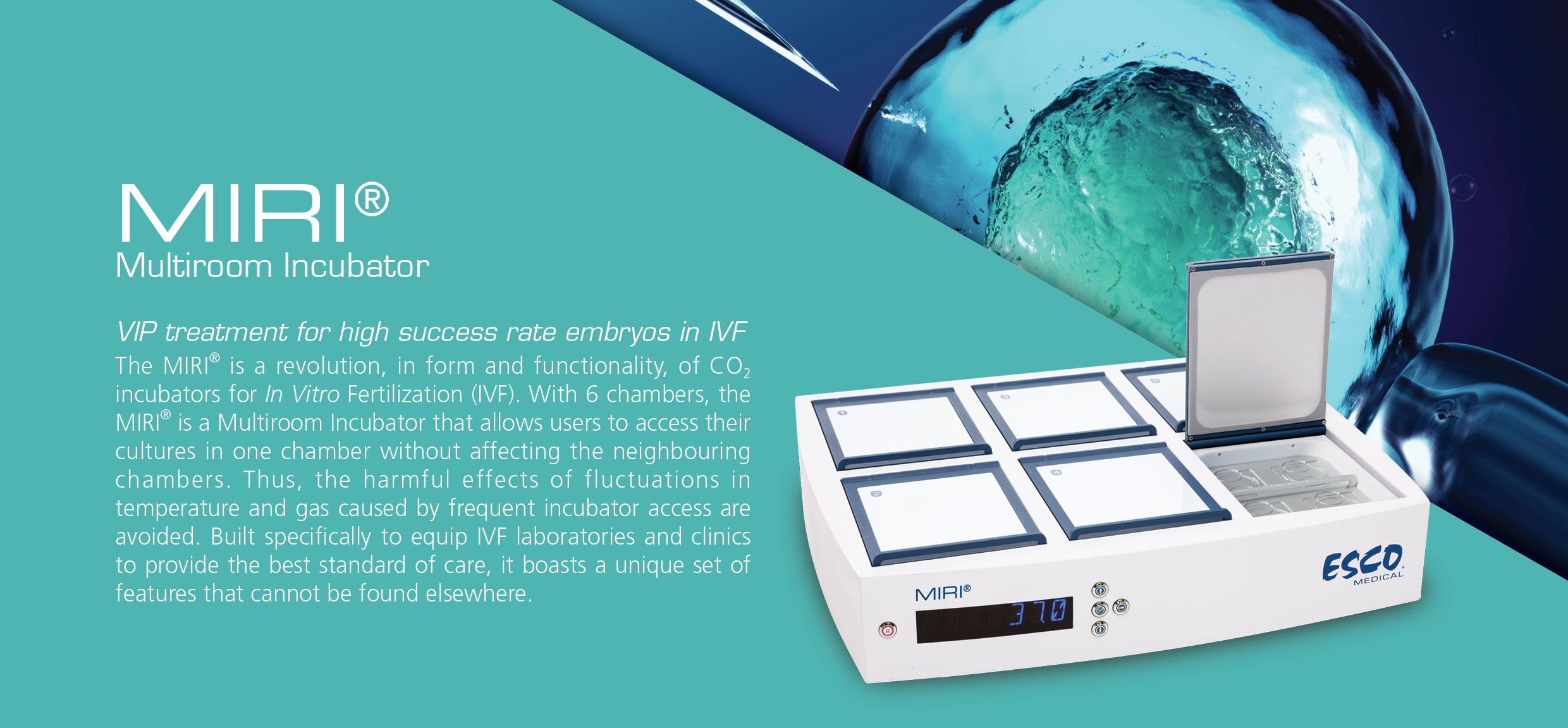
Heated Lid
Each chamber has a heated lid, that enhances temperature regulation and recovery. It allows the incubator to maintain the optimal temperature needed by the cells to grow and develop.
Continuous pH monitoring
Safe Sens technology is a type of optical fluorescent measurement technology that can be installed to MIRI. It is fast, effective, and non-invasive continuous pH monitoring that helps the user to check and monitor their culture’s pH level without disturbing the embryos.
HEPA/VOC filter
This MIRI is equipped with HEPA/VOC filtration system that ensures clean and safe gas recirculation inside the incubator. With this filtration system, the user can ensure that there will be no volatile organic compound that can enter the incubator and damage the embryo.
Multiroom benchtop incubator
One important advantage is the speed of recovering gas and temperature parameters after opening a chamber. Each chamber is completely independent of the other; any fluctuation or error happening to one chamber won’t affect the chambers. It also prevents cross-contamination among the cultures.
Superior Gas System
This equipment has a reliable gas mixing system that gives total control over the use of 100% CO2 and 100% N2 to achieve stable gas condition faster than the premixed gases. It is very important for the cells to have a maintained and well-controlled right amount of gas concentration for this will stabilize the pH during the development.
Large LED Display
It has a large LED display that helps the user to monitor the incubator from a distance. It also has a friendly user and easy-to-navigate menu.
Choosing and using the right incubator can help embryologists to yield a better outcome. Aside from the careful and tedious preparations during the early phase of in vitro fertilization, it is important to know common stressors that could affect the quality of the cells being cultured. With the given features of the MIRI® Multiroom Incubator, the said factors above can now be minimized and improved the IVF results. This will increase the IVF and pregnancy success rate. Aside from the paternal and maternal factors such as hormonal disorder and uterine abnormalities, poor-quality embryos can also contribute to recurrent implantation failure. Having a healthy and well-developed blastocyst is one of the major factors that can increase the survival rate during the implantation process. According to the study made by the researchers, there is a significant increase in the implantation rate with the good quality and healthy blastocyst compared to the poor ones.
